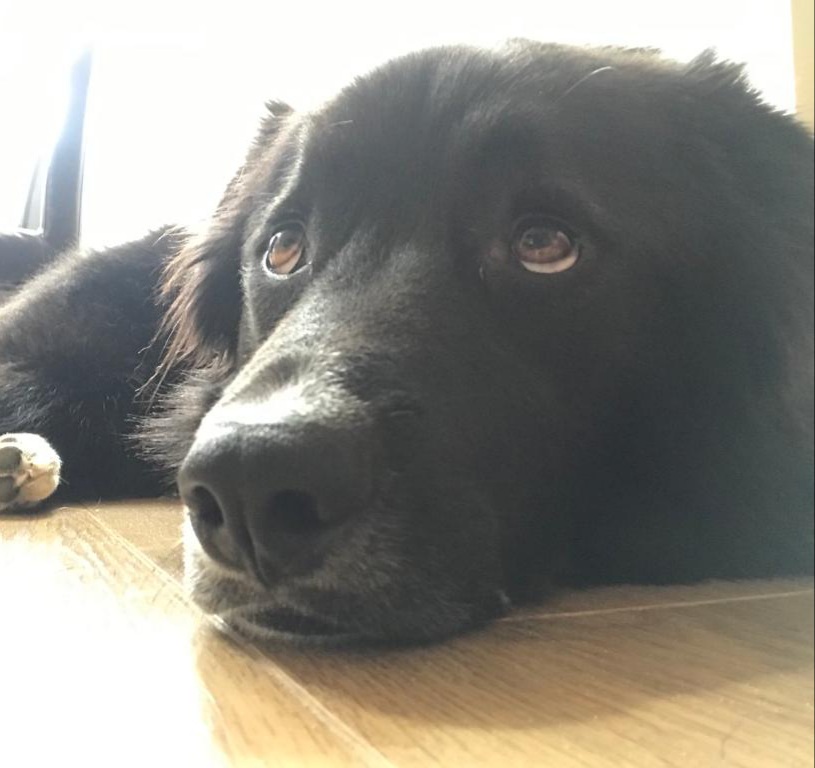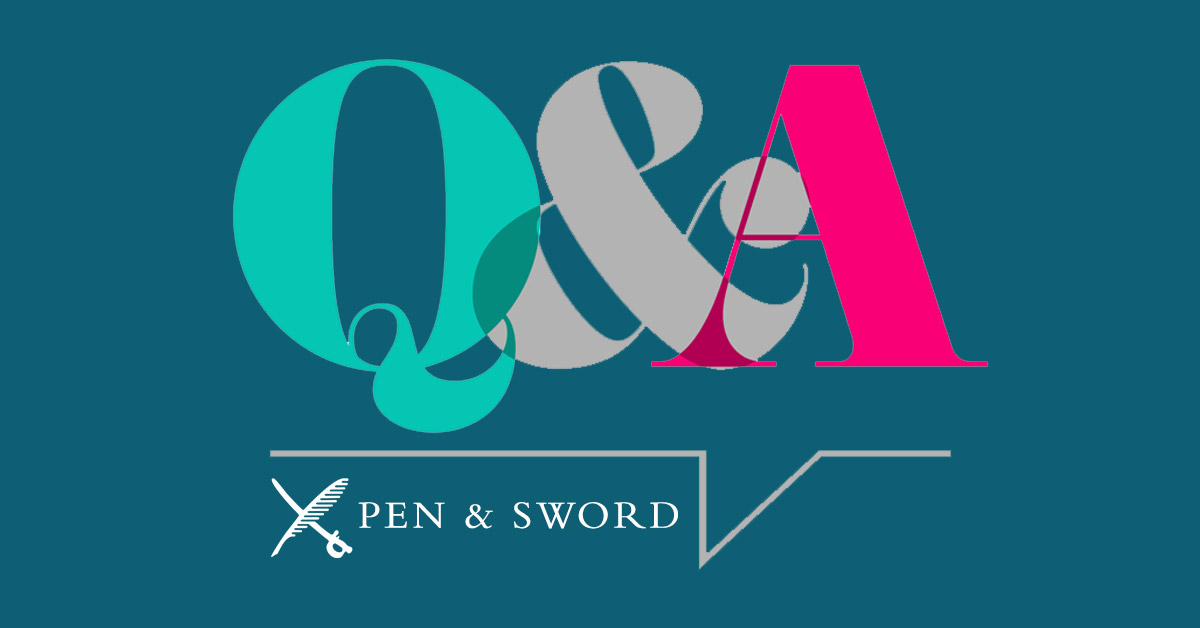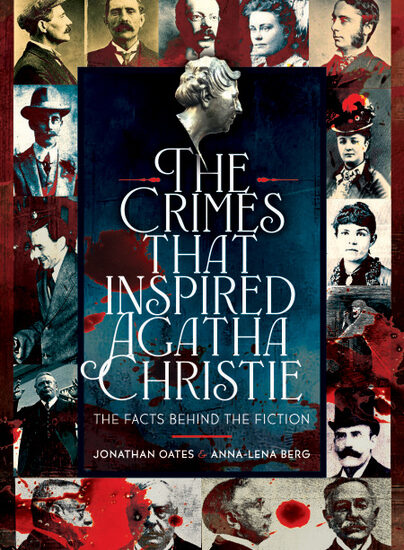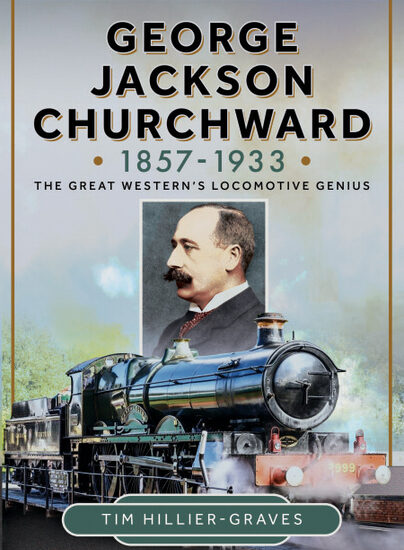Meet the team: Philip Sidnell
Throughout August we will be introducing you to some of our great team here at Pen and Sword. Today it’s the turn of Phillip Sidnell (and his dog Milo).
• Tell us a little bit about your role at Pen & Sword, and how long you’ve been doing it?
I joined Pen & Sword in November 2006 as a Commissioning Editor, so I’ve been in this role for nearly 14 years now. As a Commissioning Editor it is my job to find new books for Pen & Sword to publish. That is either by assessing proposals (or, less often, finished manuscripts) sent in speculatively, or by identifying subject areas or specific books ideas and then identifying suitably qualified experts and persuading them to write them for us. Over time you build up a stable of regular authors and there is usually a good two-way flow of ideas for future projects. Undoubtedly my favourite part of the job is discussing new book ideas with an author.
• Did you always want to work in publishing, how did you come into the job?
I’ve always loved books but any ambitions I had regarding publishing when I was growing up were more towards being an author. I messed up my secondary education but, after a string of dead-end jobs, I pulled myself together and went to evening classes and then university in my mid-twenties, gaining a first class degree in War Studies and History at King’s College London. It was towards the end of the course that I decided publishing military history might be a good option for me. Upon graduation I did some work in a bookshop and briefly at a tiny publisher (which turned out to be mainly telesales) before landing a job with Book Club Associates (they used to run those book clubs whose leaflets were always falling out of any magazine you bought and offering you 4 books for 99p– they’ve all gone now). I started as assistant to the editor of the Military History and Aviation Book Club, my War Studies degree and the ‘specialist knowledge’ gained as a lifelong military history nerd standing me in good stead. Eventually I moved up to take over as editor of that club as well as of the Ancient & Medieval History Book Club. This meant I was meeting publishers to discuss their forthcoming books, reading and assessing them for inclusion in the book clubs’ catalogues and ultimately purchasing stock. One of those publishers was Pen & Sword. When I decided to leave Book Club Associates I mentioned to a few people, including Pen & Sword’s Paula Hurst, that I was looking for a new role, preferably in military publishing. A few days later I got a call asking if I’d be interested in talking to the MD, Charles Hewitt, about a commissioning role with Pen & Sword. I jumped at the chance and the rest, as they say, is (military) history.
• What are some of the biggest changes to take place at P&S since you joined (if any)?
That’s quite a tricky one to answer. Because I work from home at the other end of the country, I am a bit isolated from most of what goes on day to day at Pen & Sword. Obviously we’ve had new computer systems (most of which I don’t use in my role), we now do ebook editions of most books and there is much more focus on marketing through social media and that sort of thing, but I have not been directly involved with that so my role has gone on much the same as before. I suppose the biggest change at Pen & Sword is the much broader range of books we cover now. When I joined it was very much a specialist military, aviation and local history publisher; now we have transport and social history imprints and the addition of White Owl has opened up a whole new vista of lifestyle, nature and more general interest books.
• Do you remember the very first book you signed up for P&S? Is it still in print today?
Yes, it was The Wars of Alexander’s Successors 323-281 BC volume I: Commanders and Campaigns by Bob Bennett and Mike Roberts. The hardback has gone out of print but it is available in paperback (along with volume 2) and it has only recently been overtaken as my best-selling book to date.
• We know you could never pick favourites, but tell us about some of the books/series you’ve worked on over the years which you are most proud of, authors you’ve felt privileged to work with etc?
That is difficult. Rather than single out specific books or authors, I think the things I am most proud of are the new areas I’ve developed for Pen & Sword. When Charles Hewitt first interviewed me about the commissioning role he asked me what I could bring to Pen & Sword that was new. I identified two market areas that they (and most of their competitors) had barely touched: ancient military history and miniature wargaming. These were both areas of great personal interest to me. I have a long-held interest (my wife says ‘obsession’) in ancient armies, studied ancient warfare as part of my degree course and had already written a book on ancient cavalry; and I’ve been wargaming as long as I can remember (yes, I play with toy soldiers). Pen & Sword had only done a handful of ancient books at that point and none specifically about wargaming. So I had a blank page upon which to build a list from scratch in each of those areas. I’ve had plenty of people (most gratifyingly the eminent Professor Sabin under whom I’d studied ancient warfare at KCL) tell me the breadth of our ancient military range is now second to none. The wargaming market has been a harder one to crack but we are getting there – both the books that just overtook The Wars of Alexander’s Successors vol 1 as ‘my’ top sellers are about wargaming. I’m also very proud of having given a chance to a number of first-time authors who are now well-established names in their field, like Ian Hughes and Lindsay Powell to name but two.
• What are the perks of the job – has your work allowed you to visit anywhere special, meet anyone inspirational?
Many of my regular authors I now consider also to be friends – even though many of them I have not met in the flesh, scattered across the globe as they are. Some of these are historians I already knew and respected from their works and in some case from seeing them on TV as experts or presenters on documentaries. So I have gained a network of like-minded friends around the world.
Working from home all the time is obviously a massive perk. When I got this job I had a 3-year-old son and his little sister was on the way. Working from home meant no more daily four-hour-plus round trip from my home in Kent to North London, no more missed family dinners or bedtime stories. As my kids have grown up, working from home has allowed me to do the school run, attend parents’ evenings, and just generally be the primary carer while my wife was still doing the commuting thing and ridiculously long hours. I can’t now imagine how our family set up could have worked any other way. And more recently, as my now-teenage kids need me less, I get time to go running or walk our dog in the Kent countryside. Our regular route takes me to farmland overlooked by the railway and when I see the train I used to take to and from London full of commuters it usually gives me a smug smile (though they are virtually empty since Covid struck). I took a pay cut when I took this job but the work/life balance has been priceless and I’ve never regretted my decision.
Another perk of the job was the several times I was invited to organise a wargame for the Pen & Sword staff, ostensibly to help them understand that market better but also just for a bit of fun and team building. Getting paid for wargaming? That’s living the dream for a self-confessed wargaming geek like me. I remember for the first one borrowing hundreds of miniatures from author Ian Hughes, who lives near Pen & Sword HQ, and being pleasantly surprised that the staff, young and old, male and female, joined in with such good humour, even enthusiasm. I ran the next few myself but later organised them with a guest umpire. As well as enthusiasm my colleagues displayed great competitiveness and tactical aggression (Paula Hurst), a few tantrums (Charles Hewitt!) and, it has to be said, quite a lot of attempted cheating (Charles again and Jonathan Wright). One time I invited Rick Priestley, who had just written a book for us, to organize and umpire a game. This was a highlight for me – Rick is a legend among wargamers, being one of the co-creators of Warhammer and many other games. Fortunately the participating staff were much better behaved for him than they were when I was umpiring. I even got Rick to autograph my Warhammer rulebook.
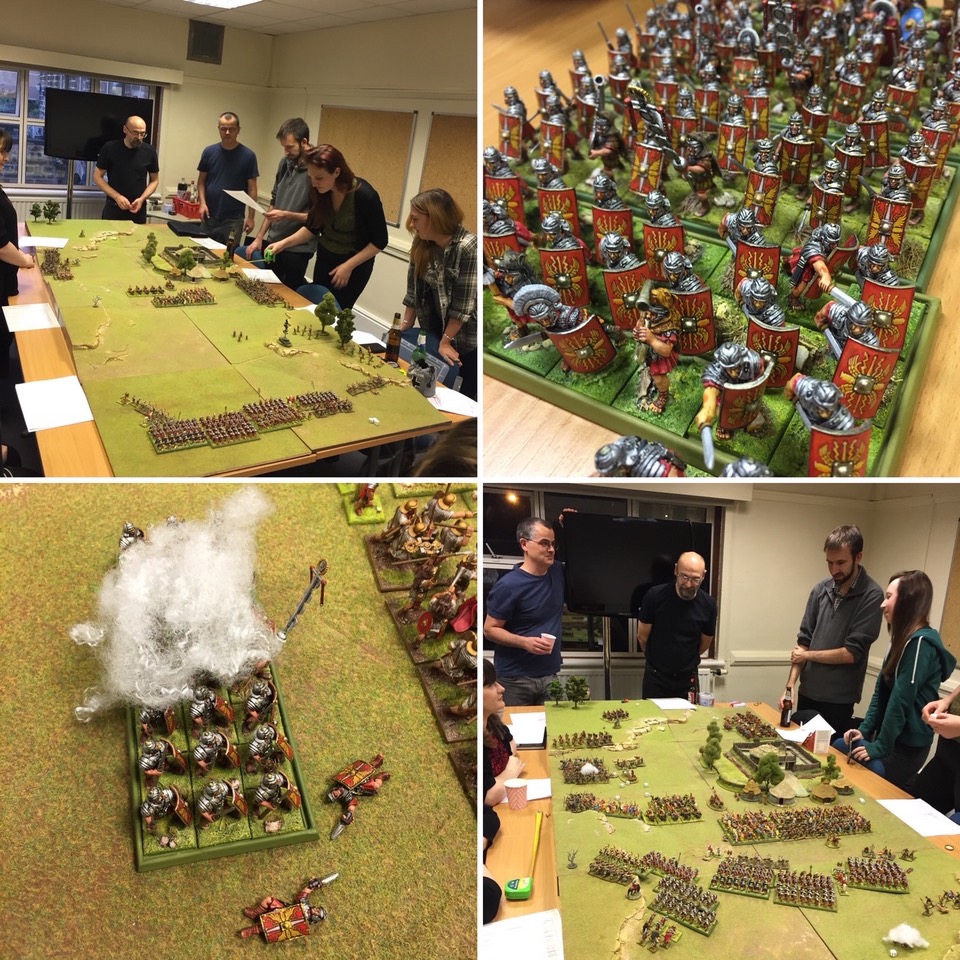
I suppose the biggest perk of all is that my job largely consists of thinking of books I’d like to read, finding experts to write them, then getting to read them for free. Receiving the finished sample copy is still an exciting moment!
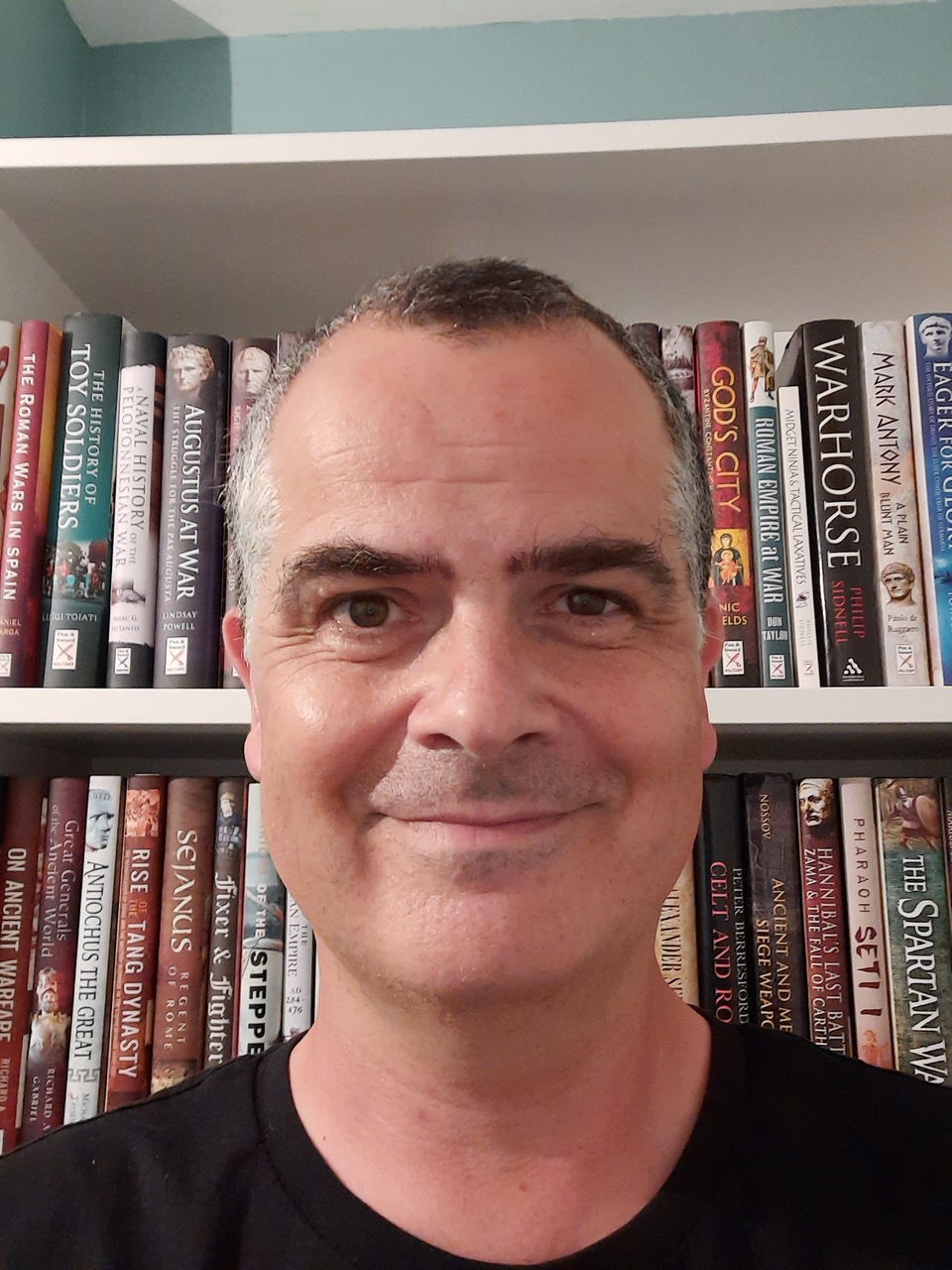
• What would be your dream book for P&S to publish – and would you write it yourself?
Another tricky question. I do have something spectacular in mind but I think I might yet actually be able to bring it about so I don’t want to give the idea away here. I have been tempted to write it myself but it would be a huge commitment of time. I have actually written two books previously. The first of those, on ancient cavalry, was written before I joined Pen & Sword and published by a different publisher (it’s now available from Bloomsbury, so I can say I share a publisher with J K Rowling!) and I still cling to a dream of doing a new, revised edition that would be closer to how I originally intended it. In addition to correcting a couple of errors that make me wince every time I think of them and adding maps and more illustrations, it would benefit from more practical research conducted on horseback with replica weapons. However, as I haven’t ridden for years and have a dodgy back I’d probably get someone younger and more skilled to do that bit for me. My second book was a fun collection of bizarre bits of military history trivia and I am slowly gathering material for a second volume of that. I am also theoretically writing a novel (actually, I’ve started several) but that’s just fiction and so not right for Pen & Sword.
• What’s next? What projects are you working on at the moment which are due to be published in the rest of 2020/2021 which you are really excited to see released?
Exciting things coming up? Hmmm, let’s see. There are obviously too many to list here but off the top of my head, Dogs, Working Origins and Traditional Tasks by Mike Loades. Mike is one of my favourite authors to work with, not least because I already knew and loved his work as a historical TV presenter before I approached him to write for us. We share a love of horses and swords (he wrote the beautiful Swords and Swordsmen) and I admire his infectious enthusiasm for whatever he is currently working on. This one is something a bit different from the rest of my publishing list in terms of subject (it’s actually under the White Owl imprint) and will be an excellent Christmas gift for any dog lover; it even features a picture of my dog, Milo.
Then of course there’s Roman Britain’s Missing Legion by Simon Elliott, who seems to be becoming quite the TV celeb with appearances on various archaeology documentaries. I should also mention John D Grainger’s topical Climate Change: An Archaeological Perspective which explores how our Neolithic ancestors coped with global warming. One that is a bit further off (late 2021 publication), but which I can’t wait to read when the finished text is delivered in a few weeks is Tristan Hughes’ first book: Alexander’s Successors at War: The Perdiccas Years 323-320 BC. It’s the first volume in an unprecedentedly detailed account of the wars of the Diadochi, probably my favourite period of history (and my son Alexander helped design the book jacket while he was in the P&S offices on work experience). Tristan is editor at Dan Snow’s History Hit TV and from what I have seen is a real talent to watch for the future. I could go on…
• Outside of work, what have you been reading during lockdown/what are you currently reading/what’s your favourite book of 2020 so far?
I occasionally read historical fiction but don’t usually separate reading for work and reading for pleasure – I’m lucky enough to love reading the subjects I commission and don’t have much time for other stuff. Having said that, I have just started a book I have been meaning to read for ages: The Horse, The Wheel and Language by David W. Anthony. Before that, the last ‘non-work’ thing I read was Berlin Calling, an as-yet-unpublished novel by a friend (and sometime Pen & Sword author), Terry Crowdy. It’s set in the early 90s and follows the misadventures of an ambitious but hapless rock band from Gillingham in Kent who tour East Germany just after the end of the Cold War and get unwittingly involved with drug smuggling, corrupt Russian officers, CIA agents, Chechen gangs etc– inspired by the author’s own experiences!
• We know that you are an old hand when it comes to working from home, whilst many of the office staff have had to adjust to a new way of working during the pandemic. Who – if anyone – supports you during the day and how do they help?
I am very aware, and very grateful, that the whole lockdown thing has had much less impact on me than on most because I worked from home anyway. For the last couple of years I’ve had our rescued puppy Milo at home with me and he was distracting enough, but since March I’ve also had to contend with having my wife and two kids home as well. Although my family are a wonderful support in life generally, and I adore them of course, they are actually a bit of a pain in the…neck, when it comes to working. Because my wife’s work requires lots of phone and video meetings and much of it is confidential, she has ousted me from our little office (not before she got me to redecorate it to her taste though) and I am now ensconced on the dining table where I have to contend with the dog stealing pens, pads, my glasses etc and hiding them in the garden. Recently he chewed part way through the power cable to my PC. The kids, to be fair, generally only emerge from their rooms to find food or to announce that they are going out for a walk or bike ride. I generally cope by drowning out distractions with loud rock/metal/pop-punk music while I work.
